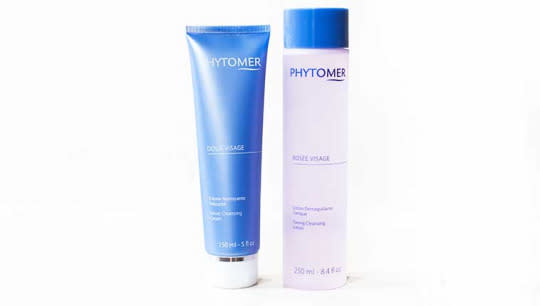Our Favorite Toners (Yes, They Actually Work!)

While toners were initially just used to remove leftover traces of makeup or cleanser and tighten the skin, the latest toners do much more than that. As the toner market innovates and expands, there’s a new breed of toners loaded with beneficial ingredients such as skin-repairers, antioxidants, and exfoliating ingredients to benefit every skin type. And yes, they really do help to tighten your pores.
Not Your Mother’s Toner
Toners were traditionally used after cleansing and before applying any moisturizing products to help balance the pH of your skin and remove excess dirt cleansing didn’t catch. But the toners of today are much more advanced: they contain antioxidants or other potent actives that can exfoliate, reduce redness, hydrate, and help make pores look smaller. And while they don’t physically “shrink” pores, toners can serve as a delivery system for antioxidants, vitamin B derivatives, and even toning acids. Additionally, each type of toner is intended for a different skin issue, so it’s important to use the right kind for your skin concern. With all the new products on the market, at first introduction toners can seem overwhelming. Not to mention, there’s still a lingering assumption that most toners are harsh and irritate the skin—here’s a little guidance.
Large Pores
While astringent toners are on the outs, acid toners are quickly taking their place in people’s skincare routines. Sometimes called “conditioners,” these toners come equipped with alpha-hydroxy acids (AHAs) such as lactic, glycolic, malic, or beta-hydroxy acids (salicylic acid), and are great for gently exfoliating the skin and boosting collagen production for less pronounced pores and smoother skin. Concentrations usually range from 2 to 10 percent. If you’re in need of greater chemical exfoliation, then you might swap out your toner for an at-home peel. For those with large pores but sensitive skin, these daily toners are a happy medium.
Charlotte’s Book Editor’s Pick: We love PCA Skin Nutrient Toner. It’s chock full of vitamins, enzymes and alpha hydroxy acids, but it doesn’t make your skin feel tight or dry.
Acne/Oily Skin
After religiously rubbing the skin with all manners of astringents, it’s hard to break the harsh-toning habit, especially for those with oily skin. But most toners for oily, blemish-prone skin contain irritants (such as alcohol, witch hazel, or menthol) that only worsen blemishes and dry out the skin so that it overcompensates and produces even more oil—starting the cycle all over again. Look for “mattifying” toners with antioxidants that help repair the skin, and cell-communicating ingredients that help pores regulate excess oil. Niacinamide or vitamin B3 is a cell-communicating ingredient, meaning it actually alters skin cell behavior (try Vivant Skin Care Normalizing Tonic, $31.50). Niacinamide can decrease sebum production without drying skin out—music to the ears of anyone who struggles with oily skin. It’s also been shown to treat post-acne red marks and even skin tone.
Charlotte’s Book Editor’s Pick: “I have acne-prone, sensitive skin that’s super oily. I love Phytomer’s Rose Toner, a staple in my vanity in the winter. Its super gentle but effective. It’s alcohol-free and cleanses skin without drying it out. It also has one of my favorite ingredients: rosewater.” —Robin Shobin, Founder, Charlotte’s Book. The team also loves Yon-Ka Lotion Yon-Ka for more normal (but still oily) skin. Geranium flower oil provides astringent benefits to reduce the appearance of pores, and rosemary oil helps reduce excess oil production for a balanced complexion.
Dry/Mature Skin
Most people with dry, sensitive or more mature skin have been wary of toners, but finding the right toner for your skin type can result in less redness, flaking and provide an extra moisturizing step to repair the skin. Keeping an eye out for “replenishing and hydrating” toners is a good start, but scanning the back of the bottle is even more important. You want ingredients that fall under the umbrella of NMFs, also known as natural moisturizing factors. This expansive group of ingredients includes amino acids, ceramides, hyaluronic acid, fatty acids, triglycerides, phospholipids, linoleic acid, glycerin and others—they keep the structure of the epidermis (outer layer of skin) intact. Lipids are also largely responsible for the skin’s texture, so finding ingredients that can mimic them helps the skin to retain much-needed moisture. These natural emollients are found in many skincare products: look for lecithin, jojoba oil, grape seed extract, glycerin and sodium PCA.
Charlotte’s Book Editor’s Pick: Avene Micellar Lotion is softening, but it’s also a powerful cleanser. It’s alcohol-, oil- and soap-free. Read our full review of Avene here.
MORE FROM CHARLOTTESBOOK.COM
Our Review: The Alpha Beta-Medi Spa Peel
